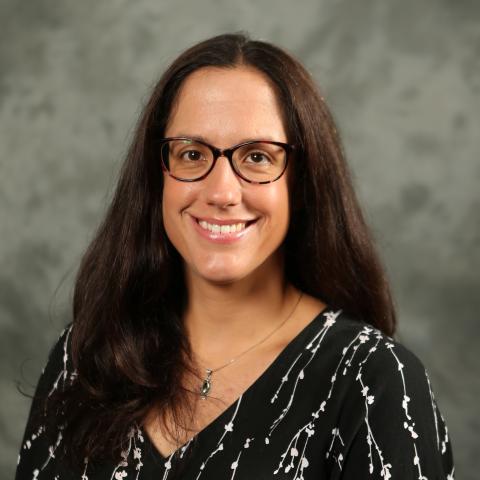Associate Professor of Neurobiology

Biography
Dr. Sarah Latchney fell in love with the brain when she took neuroscience courses as a college student at St. Lawrence University, where she earned her Bachelor’s degree in 2006. At the time, she was fascinated by the revolutionary idea that the brain is not fixed but can produce new neurons throughout life, including adulthood, through a process known as neurogenesis. Her fascination with neurogenesis, coupled with her curiosity about how environmental factors influence brain health and disease, led her to a PhD in Toxicology from the University of Rochester in 2012. From there, her research has covered a range of topics related to neurogenesis, spanning from molecular regulators, environmental adaptations, and neuro-immune interactions in the context of various psychiatric and neurological disorders.
Currently, Dr. Latchney’s research interests are broadly focused on studying how the early-life environment shapes the developing brain through the intersection of neuroscience, toxicology, and environmental health. She uses ‘environment’ as an umbrella term to include anthropogenic pollutants, naturally occurring products, and pharmaceutical agents. Students may join her lab and use various cellular and molecular approaches to study the effects of the environment on brain development.
Areas of Research Specialization
- Neuroscience
- Toxicology
- Environmental Health
Areas of Teaching Specialization
- BIOL 105: Principles of Biology 1
- BIOL 105L: Principles of Biology 1 Laboratory
- BIOL 109: Biology Emerging Scholars Program
- BIOL 380: Topics in Biology - Neurotoxicology
- BIOL 387: Sensory Biology with Laboratory
- BIOL 419: Neurobiology with Laboratory
- NEUR 201: Introduction to the Neurosciences
External Affiliations
Education
-
B.S. in Biology at St. Lawrence University, 2006
-
Ph.D. in Toxicology at University of Rochester, 2012
Awards
- Homer L. Dodge Award for Excellence in Teaching by a Junior Faculty Member (2024)
Spotlight
- Neuronal deletion of phosphatase and tensin homolog in mice results in spatial dysregulation of adult hippocampal neurogenesis
Publication in Frontiers in Molecular Neuroscience with SMCM undergraduate student (Brayan Ruiz Lopez '24).
- Glial changes in the dentate gyrus of neuronal-specific PTEN knockout mice correlate with changes in cell proliferation
Publication in Journal of Neuroimmunology with SMCM undergraduate students (Anjali Raheja '26 and Brayan Ruiz Lopez '24).
- Additional peer-reviewed publications
